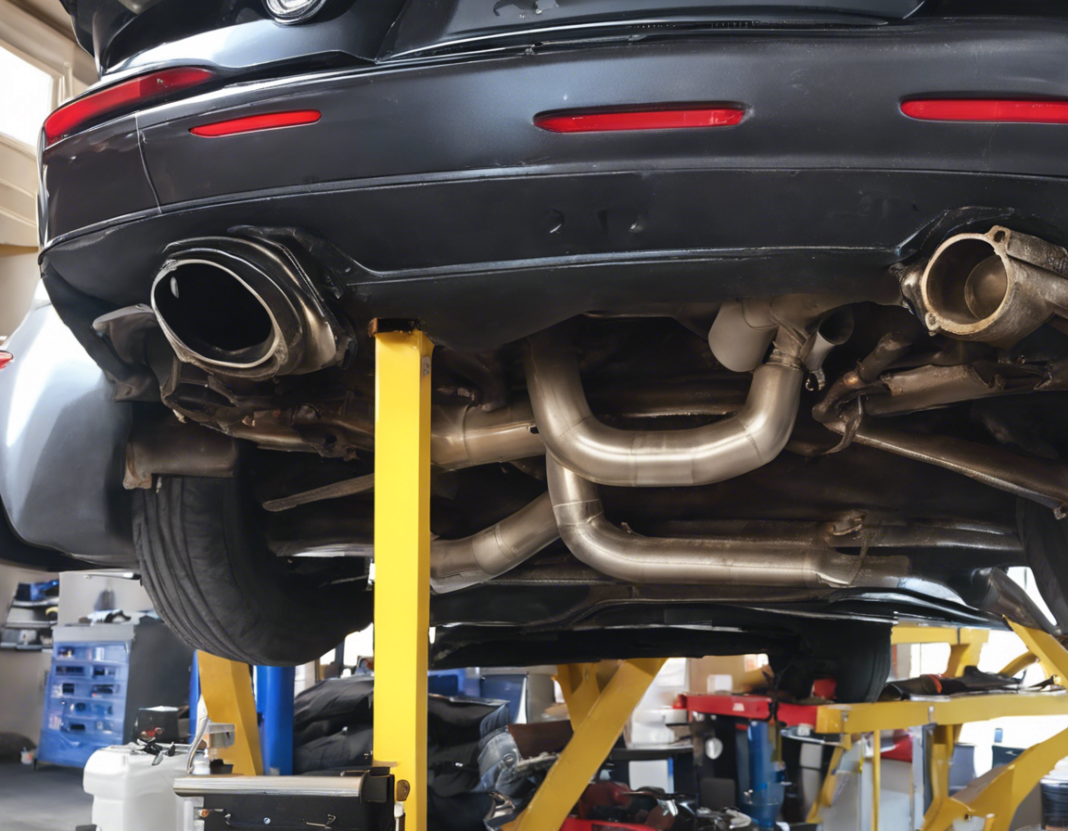An Introduction to Exhaust Leaks
Exhaust leaks are a common issue in vehicles that can lead to a variety of problems if left untreated. The exhaust system in a car is responsible for removing toxic gases produced during the combustion process, and any leaks in this system can result in these gases escaping into the environment or the interior of the vehicle. In this comprehensive guide, we will explore the causes of exhaust leaks, symptoms to look out for, potential solutions, and how to prevent them from occurring in the future.
Understanding Exhaust Leaks
An exhaust leak occurs when there is a gap or hole in the exhaust system, allowing exhaust gases to escape before they have been properly treated. This can happen at various points in the exhaust system, including the exhaust manifold, gaskets, catalytic converter, or the exhaust pipes.
Causes of Exhaust Leaks
-
Corrosion: Over time, the metal components of the exhaust system can deteriorate due to exposure to heat, moisture, and road salt, leading to the formation of holes or cracks.
-
Physical Damage: External factors such as road debris or accidents can cause damage to the exhaust system, resulting in leaks.
-
Loose or Damaged Components: Loose or damaged gaskets, bolts, or hangers can create gaps in the exhaust system, allowing gases to escape.
-
High Temperatures: The extreme heat generated by the exhaust system can cause metal parts to expand and contract, potentially creating openings for leaks to occur.
-
Poor Installation: Incorrect installation of exhaust components can lead to misaligned or loose connections, increasing the likelihood of leaks.
Symptoms of an Exhaust Leak
-
Loud Hissing or Popping Noises: A common sign of an exhaust leak is a hissing or popping noise coming from the exhaust system.
-
Decreased Fuel Efficiency: Leaks in the exhaust system can disrupt the proper functioning of the engine, leading to decreased fuel efficiency.
-
Unpleasant Smells: If you smell exhaust fumes inside the vehicle or notice a strong odor coming from the engine bay, it could indicate an exhaust leak.
-
Visible Damage: Inspecting the exhaust system for visible signs of damage, such as rust, holes, or cracks, can help identify a leak.
-
Check Engine Light: An illuminated check engine light can be triggered by a variety of issues, including an exhaust leak, and should be diagnosed promptly.
Solutions for Exhaust Leaks
-
Sealant: Utilizing high-temperature exhaust sealant can help temporarily patch small holes or gaps in the exhaust system until a more permanent solution can be implemented.
-
Replacing Gaskets: Damaged or worn-out gaskets should be replaced to ensure a proper seal in the exhaust system.
-
Welding: For more extensive leaks or damage, welding may be necessary to repair the exhaust system effectively.
-
Professional Inspection: If you suspect an exhaust leak but are unsure of the exact location or extent of the damage, seeking a professional inspection is recommended.
-
Preventative Maintenance: Regularly inspecting the exhaust system for signs of damage, ensuring proper installation of components, and addressing any issues promptly can help prevent exhaust leaks from occurring.
FAQs on Dealing with Exhaust Leaks
1. Can I drive my car with an exhaust leak?
It is not recommended to drive with an exhaust leak as it can lead to harmful gases entering the vehicle cabin and affecting your health.
2. How much does it cost to fix an exhaust leak?
The cost of fixing an exhaust leak can vary depending on the extent of the damage and the parts that need to be replaced. It is advisable to get a quote from a mechanic.
3. Can an exhaust leak cause my car to fail an emissions test?
Yes, an exhaust leak can cause your vehicle to fail an emissions test as it allows untreated gases to escape, impacting the emissions output.
4. Are exhaust leaks dangerous?
Yes, exhaust leaks can be dangerous as they can lead to carbon monoxide poisoning if the fumes enter the vehicle cabin in high concentrations.
5. How long does it take to repair an exhaust leak?
The time taken to repair an exhaust leak can vary depending on the extent of the damage and the availability of parts. Minor leaks can be fixed in a few hours, while more significant repairs may take longer.
6. Can I prevent exhaust leaks from occurring?
Regular inspection, maintenance, and ensuring proper installation of exhaust components can help prevent exhaust leaks from occurring.
7. How do I locate an exhaust leak in my vehicle?
Inspecting the exhaust system for visible signs of damage, listening for hissing or popping noises, and checking for unusual smells can help pinpoint the location of an exhaust leak.
8. Is it necessary to repair small exhaust leaks?
Yes, even small exhaust leaks should be repaired promptly to prevent them from worsening and causing further damage to the exhaust system.
9. What are the long-term effects of driving with an exhaust leak?
Driving with an exhaust leak can lead to decreased fuel efficiency, engine performance issues, emissions problems, and in severe cases, damage to other components of the vehicle.
10. Can I repair an exhaust leak myself, or should I seek professional help?
While minor exhaust leaks can sometimes be patched using sealant, it is recommended to seek professional help for diagnosing and repairing exhaust leaks to ensure the safety and proper functioning of the vehicle.
In conclusion, dealing with an exhaust leak promptly is essential to maintain the performance, efficiency, and safety of your vehicle. By understanding the causes, symptoms, and solutions for exhaust leaks, you can take the necessary steps to address the issue and prevent further damage to the exhaust system. Regular maintenance and inspection are key to identifying and resolving exhaust leaks before they escalate into more significant problems.
